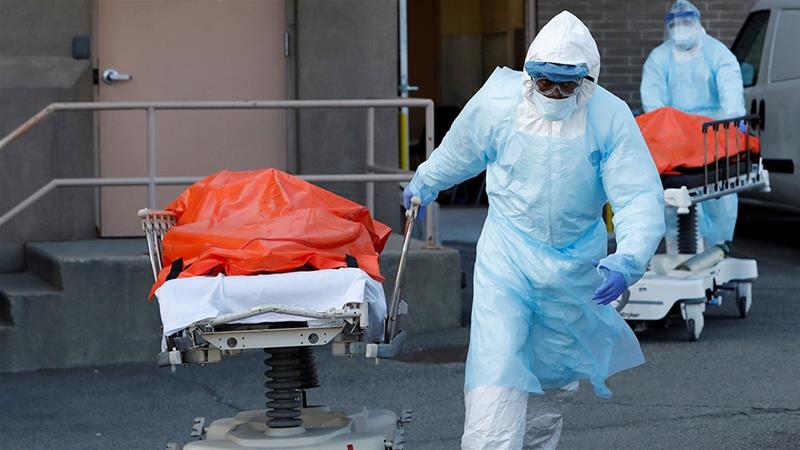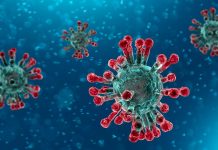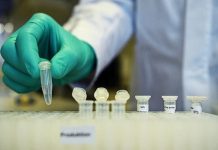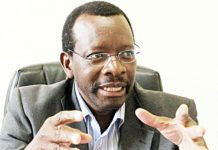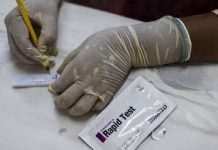Africa Press-Nigeria:
South Africa now has 402 confirmed cases of Covid-19 – an increase of 128 since Sunday’s announcement. That is a spike of 47%.
The Northern Cape has its first confirmed cases, which means that all nine provinces are now dealing with the global pandemic.
President Cyril Ramaphosa will address the nation on Monday night amid increased speculation that South Africa will go into lockdown.
“We will thereafter engage the public to give further details and explanations on the results, including the significant rise, the ongoing testing processes, each province’s progress on contact tracing efforts,” Health Minister Zweli Mkhize said in a statement.
The hardest-hit province is Gauteng, with 207 cases, followed by the Western Cape, with 100 cases.
The Eastern Cape has two cases; the Free State 13; KwaZulu-Natal 60; Limpopo four; Mpumalanga nine; North West four; the Northern Cape two; while the location of one case is listed as unknown.
Of these, 32 patients are 61 years or older, while nine are 10 years old or younger.
The reaction to the spread of the coronavirus locally has been severe.
Schools have been closed to prevent the spread among children.
“We do know that children tend to have more mild infection, have more mild disease, but we have seen [at least one child] die from this infection,” Maria van Kerkhove, the Covid-19 technical lead at the World Health Organisation, said in a press conference on 16 March. “We can’t say universally that it’s mild in children, so it’s important that we protect children as a vulnerable population.”
Internationally and locally, a multitude of events – from concerts to sports events and church gatherings – have been either postponed or cancelled.
Closing shop
The City of Cape Town closed a number of its facilities on Wednesday – including swimming pools, camp sites, recreational hubs, stadiums and community halls – in an effort to reduce the spread of the coronavirus.
This includes all public swimming pools, recreational and civic centres, stadiums, libraries, sporting facilities and the Johannesburg Zoo.
On 11 March, the World Health Organisation (WHO) announced that Covid-19 was a pandemic.
“This is the first pandemic caused by a coronavirus,” said WHO director-general Tedros Adhanom Ghebreyesus at a media briefing in Geneva.
“We are deeply concerned by the alarming levels of the spread and severity, and by the alarming levels of inaction,” said Ghebreyesus, adding that the word “pandemic” should not be used lightly or carelessly.
Last week, when there were only 61 cases, Ramaphosa declared a national state of disaster.
n terms of this, a series of regulations took effect, such as the prohibition of gatherings of more than 100 people, halting of alcohol sales after 18:00 on weekdays and Saturdays and after 13:00 on Sundays, as well as the imposition of a travel ban to and from high-risk countries.
Earlier on Sunday, the president met with business leaders. He also gave smaller political parties an opportunity to give him their views on the outbreak and the government’s efforts to “flatten the curve”.
Nigeria on Monday reported its first death from coronavirus as confirmed cases of infections in Africa’s most populous nation climbed further.


